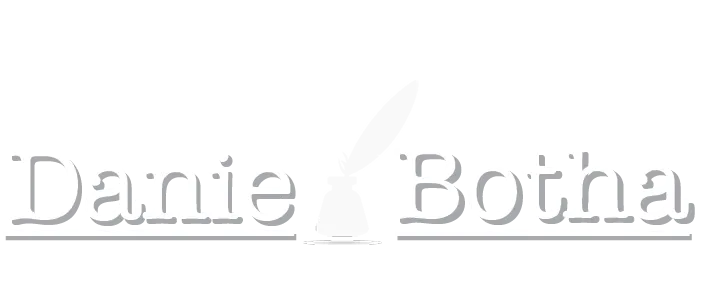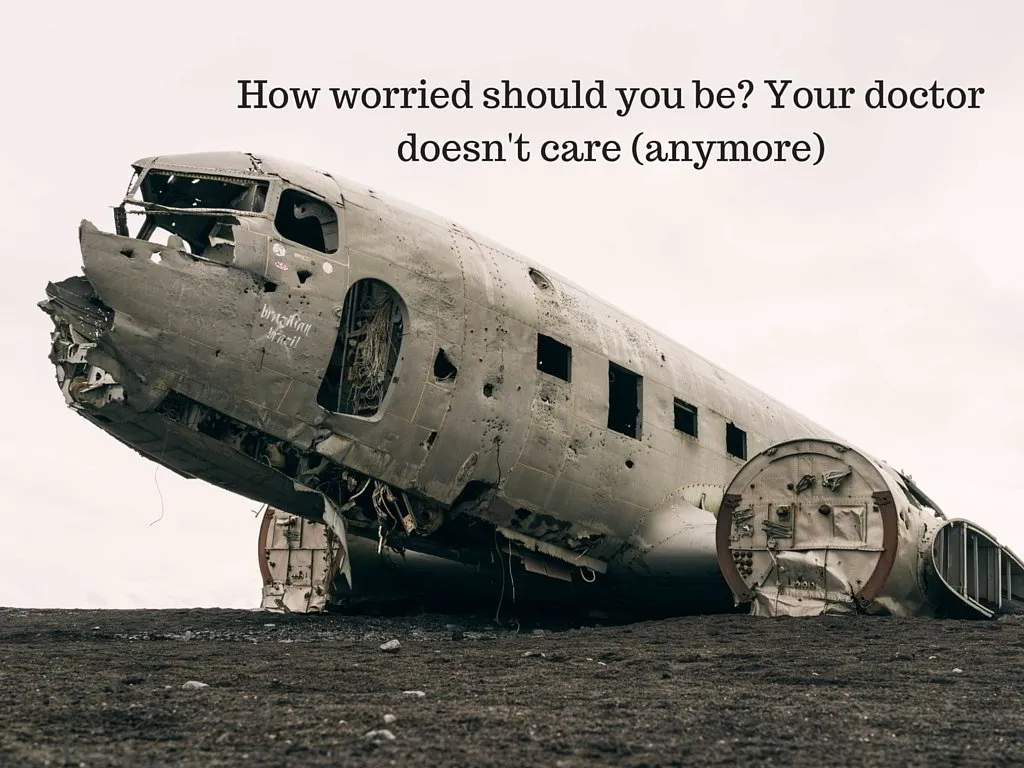Why we arrived at this conundrum and how we can escape it
This was bound to happen. Nobody cares.
It isn’t breaking news, not with us heading into the second quarter of 2016. Look around you. Watch the news. Politicians make empty promises, even blatant lies, spewing contempt at their followers and get applauded; knowing they won’t be held accountable. Investors and financial institutions in the West and autocratic leaders in the Third World plunder their countries’ economies (time and again) and they walk away unscathed, and are even rewarded.
Governments slap their law abiding citizens with often-unfair taxes, especially the middle income group. Senators and MPs gallivant around on questionable trips, wasting money. Little oversight and even less accountability is in place or enforced. Regular citizens are treated with contempt—they have become a disposable commodity, a milking cow. A European trained ophthalmologist leads a civil war in his country, in the Middle East for the past five years, which has cost hundreds of thousands their lives and displaced millions. Suicide bombers kill scores of defenseless civilians in attacks at regular intervals across Europe and around the world.
The world staggers each time, catches its breath, then marches on. Because, it has to.
And yet we are convinced there are limits to propriety. All those horrible things happen in other countries, we believe. But when someone claims: “doctors don’t care,” the line is finally crossed. That for us, is heresy. Sacrilegious. What happened to the Hippocratic oath? How can doctors not care? It’s the innate nature of their profession to be concerned, to heal, to cure, to take care of other’s pain.
Sorry, but there’s a dilemma: Your doctor doesn’t care (anymore.)
How many RCTs (randomized controlled trials) will have to conducted to determine whether this is accurate? It would be impossible to get past ethical boards to perform large enough studies with proper controls. Surveys and probability-based samples can help us, though. A recent study by the Mayo Clinic points at an increase in burnout of physicians in the US, up from 2011. They experienced an increased dissatisfaction with work-life balance.
Should you lose sleep about this (new) reality?
Probably. Like you and everybody else around the world, your doctor doesn’t care anymore. Although, it is not the same as being burnt out.
If it wasn’t so shocking, it would have been liberating, not to be responsible every day to “care and save others.”
How did we even arrive at this point? Where are the good old days when “real” doctors did home visits, treated patients (often) for free and were able to work 100 hours a week, without bitching and moaning and insisting on a “work-life balance?” They could in the old days. They were so resilient, so tough; we have come to believe they were “super-human.”
Where are the good old days when we didn’t have to listen to the incredible fact that every year between 300 and 400 physicians and medical students in North America end their lives through suicide?
I hear the voices going up: how dare doctors not care any more? How dare they claim professional burnout, even abuse, leaving the profession? Those voices claim it is from a position of immense privilege that doctors and medical students say this. How dare they? Rest assured, not all physicians are “stinking rich.” Many come from humble origins, borrow money to study (pre- and post-graduate) and end up with hundreds of thousands of debt when they qualify. Many also remain humble.
Let us return to the first year medical student. Motivated young men and woman, enthused, brimming with passion and dreams of learning the art of healing and caring, of diagnosing, of treating and preventing illness and disease. And then, as the years progress, and reality sets in, something happens. Some become badly scarred during training by abusive medical school systems, others during their years of practice: of caring, exposed to the extremes of disease and trauma, constantly dealing with death and dying and fending off abuse by powerful bureaucratic bodies. Many physicians are tough. They learn resilience. They learn to cope. Fortunately, the rewards of being a physician, stretches beyond the financial.
Yet, those physicians who struggle with stress and mental strain, are often scoffed as weak and incompetent—losers. Perhaps, they were the ones who cared too much, who cared too deeply. Adding insult to injury is a growing body of relentless health management bodies, which reduce physicians to commodities, disposable pawns planted along assembly lines, strangled with bureaucratic red-tape, where very little remains of personal patient care, where medicine is reduced to a strict cold business, with twisted responsibilities. Many physicians suffer from compassion fatigue, also called secondary traumatic stress disorder (STSD); it is the profound emotional and physical exhaustion found in professional caregivers.
The Triple Aim has become the new gold standard in health care: enhancing patient experience, improving population health and reducing costs.
Fact is, the chasm between unrealistic societal expectations and medical professional reality is ever increasing.
Those physicians who hold out, year after year, because they care deeply, encounter more and more of the above, of the Triple Aim, and of individuals, patients who simply can’t be bothered, who only have rights and no responsibilities. Patients who don’t give a hoot. Because it is the doctor’s job to keep them healthy and ensure their treatment will be a wonderful experience. That’s why they get paid that much, the bastards. Let them earn every single dollar!
Why should I stop smoking, doctor? It’s an addiction, I can’t help it. Why don’t we sue the tobacco company? How dare you tell me to cut back on my drinking? It calms my poor nerves. If you don’t place me on disability, I’ll simply go to your opposition. And then there’s the college, to keep you in line, doctor. You expect me to exercise. Don’t be ridiculous. I’m anyway too depressed to be active.
We will not discuss my weight, it’s a personal matter. I’ll report you to the college that you say I’m fat (even though you didn’t really.) It’s in my genes. My whole family are large people. Why do you keep nagging me to go for that sleep study? I told you I don’t stop breathing at night. Even my wife says so! I can’t afford to go to the dentist to get these loose teeth fixed up, it’s not covered by healthcare. What do you know about periodontal disease and heart attacks and stroke and diabetes? You’re just making this up to scare me.
I simply forget to drink my blood pressure pills. You can’t blame me. I’m old. It’s not my fault the hospital administration placed a doughnut shop in their foyer; I love the smell of freshly baked treats. Oh, those sugar highs! I’m anyway too busy to prepare healthier food. I can’t see why I should become functionally fit before my surgery. Isn’t it your job as surgeons and anesthetists with all those fancy scopes and machines and drugs and ICUs to take care of me?
It is 2016. It is time we grow up and accept responsibility.
Burnout of physicians and other members of the healthcare team threatens the Triple Aim. It will definitely fail if we don’t add a fourth dimension: improving the work-life of those who deliver care.
We have to take care of the care providers.
Health is not only a right, it is also a responsibility.
When was the last time you went on a plane trip?
You expect certain things from the pilot, and you should. He will be well trained. Don’t tell me you don’t look for the insignia, counting the golden stripes on the shoulder epaulets or blazer sleeves? Sighing relieved when you count four? You need to know he is not sleep-deprived, is not on drugs, that he will have taken care of his personal health, and that he is really fit and conditioned. That he won’t suffer from untreated sleep apnea and will have a sense of humour. (the latter is a bonus.)
Similarly, the pilot has all reason to expect you to honour your side of the agreement as his passenger: you will not carry prohibited items, (which can endanger everyone and everything), you will not be inebriated, you will not exceed the weight limit for your luggage, you will stick to the maximum of two check-ins, even if you fly business class. You will be courteous and civil throughout the flight and cooperate with the flight attendants, customs and all ground personnel.
You expect it and so does the pilot.
And when it comes to medicine, everything is suddenly different. It has nothing to do with aviation. But is that true?
Be of good cheer, there is a glimmer of good news: Your doctor actually does care, in spite of compassion fatigue and a degree of burnout.
On a daily basis do they still encounter individuals, patients who care deeply, about themselves, about their community and their doctor and health care providers. These individuals are proof there is still hope to be found, they become sources of inspiration to physicians and every one else. They are examples of overcoming adversary, of conquering cancer and grasping second chances. Some will walk the final path together, with compassion, with gratitude, with peace and humility.
How worried should your doctor be if you (the patient), insist on not caring about your own health status? When you waive your responsibilities? He can’t force you.
But, by taking the first step, by starting to become engaged in your own basic health, by learning the basics of your ailments, and how you can escape their menacing claws, you will become empowered. It will become a liberating experience for yourself and your loved ones.
In order to better look after our patients, we have to also take care of the wellbeing of our physicians. Not through more restrictive, punitive or abusive measures, but through support, collaboration and increased autonomy. That means less red-tape, less wasting of precious time on completing electronic records, insurance claims and administration; time which physicians should spend on person-to-person interaction with patients.
If your physician really doesn’t give a hoot, it will affect your health and the quality of care you and your family can expect and will receive.
As in any relationship, trust, respect and reciprocity is essential.
I am not delusional (about everybody caring.) However, to be concerned for the wellbeing of a fellow human being, is within each one of our reach. Don’t only care about your health. Care about your children, your parents, your siblings, your street, your city, your country and yes, a little about your world.
It is a choice: to care. It’s that simple, and it’s that complex.
What do you think?
References:
- Why do so many doctors die by suicide? Shawn Radcliffe. March 8, 2016. Healthline News.
- Physician Suicide, EMedicine at Medscape.com
- From Triple to Quadruple Aim: Care of the Patient Requires Care of the Provider (Thomas Bodenheimer). Ann Fam Med Nov 2014; 12, 6, 573-576)
- Nurit El-bar et al. Compassion fatigue, burnout and compassion satisfaction among family physicians in the Negev area. Israel Journal of Health Policy Research 2013, 2, 31/ DOI:10.1186/2045-4015-2-31
- Changes in Burnout and Satisfaction With Work-Life Balance in Physicians and the General US Working Population Between 2011 and 2014
© 2016 DanieBotha.com. All rights reserved.
Image courtesy of Unsplash – Jared Erondu


